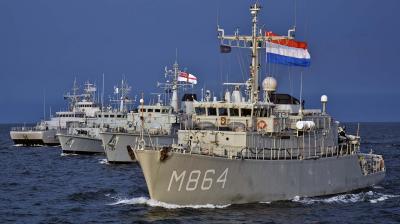Prospects for Europe with the Indo-Pacific
For Europe to play a meaningful role in the Indo-Pacific, its actions must be in line with both the interests and needs that the EU and its member states share with countries in the Indo-Pacific. Much work is already being done, but much more can be done.
To achieve concrete progress, this Policy Brief presents 10 steps for action. It builds on the substantive Track 1.5 European Dialogue on the Indo-Pacific co-hosted in January 2024 in The Hague by the Clingendael Institute, Stiftung Wissenschaft und Politik (SWP, Berlin) and the Fondation pour la recherche stratégique (FRS, Paris). Aiming to enhance European coordination and action, its findings were also discussed in an online session with European Indo-Pacific envoys and responsible officers.
The 10 actionable steps proposed in this Policy Brief consider three domains of action:
Alignment with Global Gateway
- Indo-Pacific action should be aligned with Global Gateway projects and promoted with a focus on a select number of 2-3 flagship projects, including the Copernicus earth observation programme.
- Coordinated joint action in the Indo-Pacific by development finance institutions and the private sector would be encouraged by targeted regulatory guidelines and strengthened by encouraging programmatic approaches rather than stand-alone projects.
- To stimulate the mobilisation of private capital, more can be done to build upon unique European strengths through capacity-building in partner countries’ financial sectors.
- More coherent strategic communication requires a clearer strategic narrative and a high-level political representative to steer and align action and ensure visibility.
Defence and Security
- Naval missions by EU member states to the Indo-Pacific region are not only appreciated demonstrations of commitment, but also ways to foster greater willingness in the region to cooperate in other fields, including on disruptive emerging technologies.
- Naval presence and capacity-building – including through projects like Crimario – can be used to reinforce each other mutually, as employing hard and soft options in tandem enhances European credibility by signalling broader commitment to the region.
- The give and take of involving Indo-Pacific partners in Europe’s security could be expanded further to build ownership and demonstrate that both sides have a stake in each other’s security.
Economic Security and Resilience
- EU and Indo-Pacific partners acting on shared interests in economic security through sector-specific minilaterals would enhance mutual resilience.
- European governments can profit from mutual learning and cooperation with Indo-Pacific partners to reduce unwanted strategic dependencies and support companies as they pursue diversification.
- EU member states’ divergent histories, economic weights and views on ties with the United States and China offer alternative entry points for engagement with even more diverse partners in the Indo-Pacific.
The consistent presence of leaders is required for the EU–Indo-Pacific Ministerial Summit to deliver on its promise of being a forum to build confidence and trust between the two regions, steering progress of tangible projects and initiatives into mutually beneficial directions.











